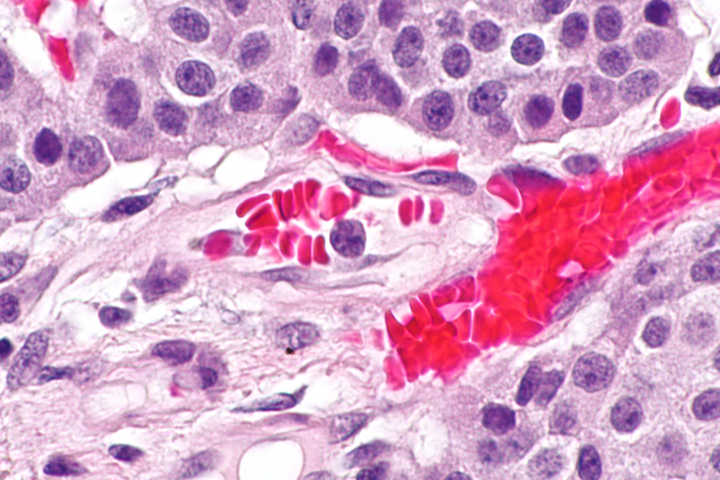Testing a New Drug on Advanced Pancreatic Neuroendocrine Tumors

Can an experimental drug that has been found to stop the growth of, or even shrink, tumors be effective against pancreatic neuroendocrine tumors (PNETs)?
Researchers are testing the drug sapanisertib to see if it can halt the progression of PNETs that cannot be surgically removed, have not responded to other treatment, and have spread to other parts of the body.
What Is Sapanisertib?
Sapanisertib is one of a group of drugs that interferes with tumor progression by blocking an enzyme (called mTOR) that a tumor cell needs for growth. It is being tested in a number of different advanced cancers, including bladder, kidney, breast, liver, and certain types of lung cancers, among others.
Participating in This Trial
The primary goal of this phase II study is to evaluate how well PNET tumors respond to sapanisertib. To qualify for this trial patients must have advanced PNETs that cannot be surgically removed, and which have not responded to previous treatment with similar drugs. All participants will receive sapanisertib, and will be checked periodically to see if their tumors are responding to the drug.
We encourage you to consult your physicians for clinical trials that may be right for you. The website ClinicalTrials.gov provides more details about this trial as well as many others. You can visit the Let’s Win Trial Finder for a listing of all active pancreatic cancer clinical trials.
This trial has been completed. To learn more about a clinical trial for PNET read “Immunotherapy for Pancreatic Neuroendocrine Tumors.”



